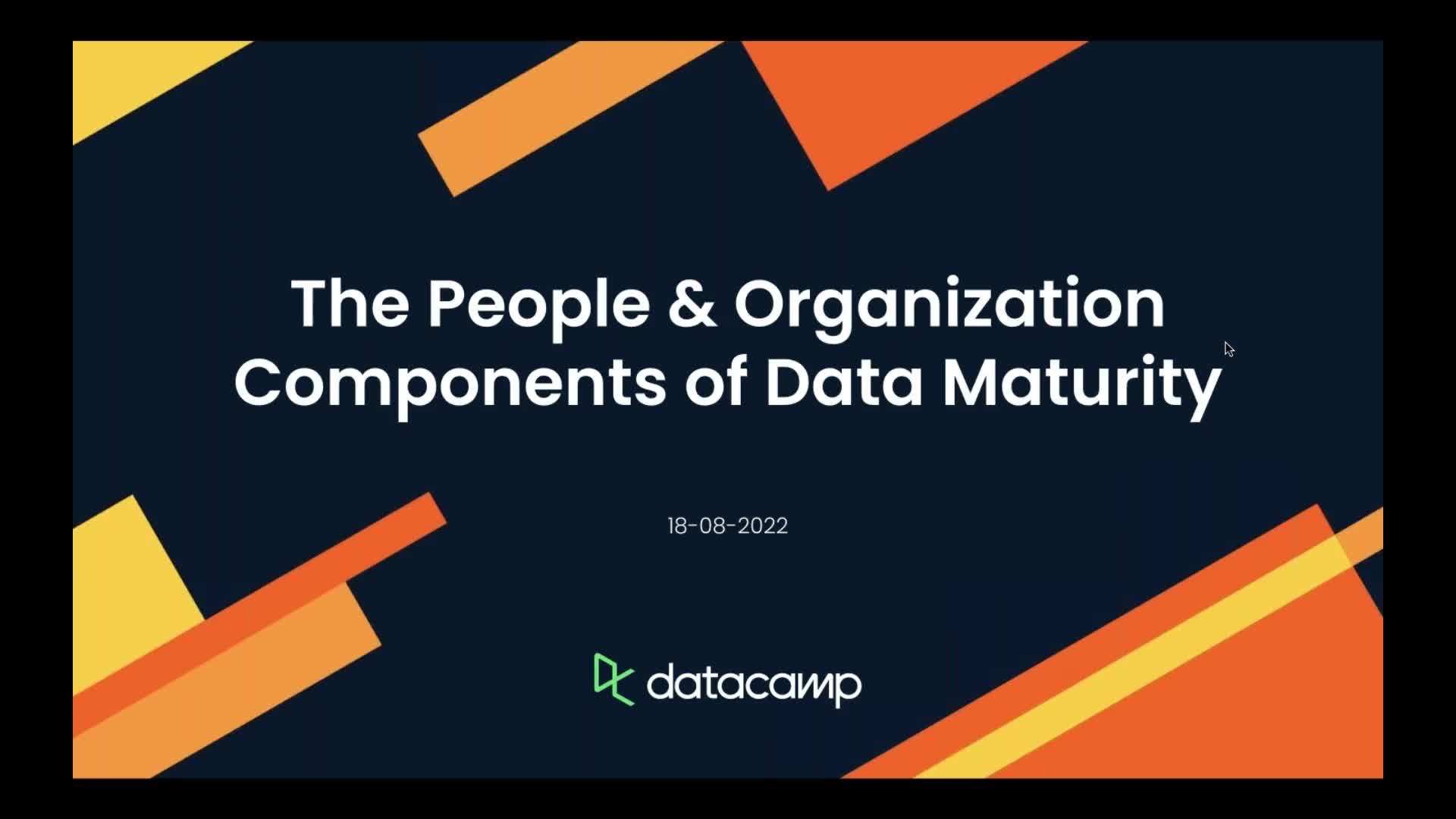Direkt zum InhaltWeitere Informationen





Lautsprecher
Trainierst du 2 oder mehr?
Erhalten Sie für Ihr Team Zugriff auf die vollständige DataCamp-Bibliothek mit zentralisierten Berichten, Zuweisungen, Projekten und mehrVerwandt
infographic
Your Organization's Guide to Data Maturity
Learn about the levers of data transformation in this handy infographicwhite paper
Your Organization's Guide to Data Maturity
Learn how evaluate and scale data maturity throughout your organizationwhite paper
Your Organization's Guide to Data Maturity
Learn how evaluate and scale data maturity throughout your organizationwebinar
The Tools & Processes Components of Data Maturity
A detailed overview of how to approach data tools across the maturity spectrum.webinar
The 5 Dimensions of Data Maturity
Discover the path to becoming a data-driven organization.webinar
The Infrastructure Component of Data Maturity
Discover how investment in infrastructure advances your company's data maturity.Join 5000+ companies and 80% of the Fortune 1000 who use DataCamp to upskill their teams.
Loved by thousands of companies

